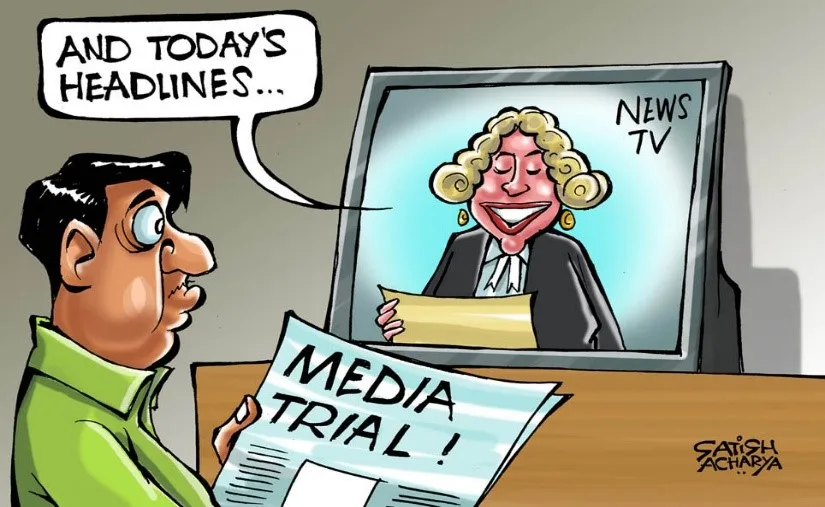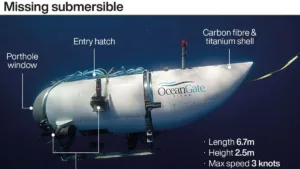
MEDIA TRIAL vs. FAIR TRIAL

Information is the currency of democracy. Apart from the three organs of the government, media also forms a cornerstone in a democratic society. It is a mechanism through which public opinion is molded and information is disseminated to the society at large. It is a powerful source to bring about awareness and in turn, strengthen the society.
However, regulating the media is a complicated and challenging endeavor in this day and age of electronic media. People’s prejudices are sown in the minds of those who are in charge of determining the guilt of the accused when the media are given unchecked and unrestricted authority to publish and broadcast information about cases.
This article analyses the relationship between “trial by media” and freedom of speech and expression which includes freedom of press. The article focuses on the influence of media trials on the Indian judicial system.
MEDIA TRIALS AND FREEDOM OF PRESS
Article 19(1)(a) of the Constitution of India declares that all citizens shall have the right to freedom of speech and expression which is not an absolute right and is subject to reasonable restrictions imposed by law in relation to contempt of Court, defamation, or incitement to offence. Freedom of press flows from this article. The media has now morphed into a public court and has begun interfering in judicial procedures. The entire judicial process and justice system is subject to public scrutiny by the media and is often referred to as the watch dog of the society.
To create a constructive check on the smooth functioning of democracy, media implicitly claims the right to investigate, reveal, expose and criticize and thereby give a fair account of the events. There should be a harmonic balance between the freedom of press and the duty to ensure responsible and accountable journalism. The freedom of press stems from the public’s right to know and to be informed in a democracy.
Media should be extremely cautious while publishing news as it would otherwise amount to trial by media. There is no doubt that the investigative role of media has been instrumental in keeping a check on the maladministration of government and exposing unlawful actions and crimes. The media has played a commendable role by taking an activist stance in a plethora of cases by pulling in the accused to the hook. However, with the speedy growth of the press, trial by media has become an acute problem.
MEDIA TRIALS: A DETERRENT IN PATH OF JUSTICE
The sensationalized coverage of events by the media has given rise to extreme arguments on the debate between free speech and an individual’s right to fair trial as advocated by the judiciary. The concept of independence and impartiality of the judiciary is an essential prerequisite for the due process of law and the right to a free trial should be guaranteed to an accused.

The rat race between cable channels for breaking news thereby the accused getting labelled prior to the commencement of the investigation impairs the right to fair trial and prejudicially impacts the administration of justice. The media has played a central role in delivering justice in the infamous Jessica Lal case and the Nirbhaya case. These cases explicitly highlight the proactive role played by media which would have otherwise resulted in a substantial downfall of administration of justice.
The accused was convicted and the case was fast tracked owing to the intervention of media. There have been various occasions wherein the press has covered the case in a professional manner and proved to be the fourth pillar of democracy. What is necessary is that the media should not indulge in investigative reporting but should rather concentrate on informative reporting without conducting any parallel investigative trial which infringe constitutional rights.
Media has been seen to create a hysteria among the public in high profile cases like the Sheena Bora murder case, Arushi Talwar case, Burari murder case and the very recent Shraddha Walker case wherein a controversial reporting of the proceeding was done with a critical and unnecessary scrutiny of the victim’s personal life. There is no justification for investigative journalism unless done in the interest of public and the actions are bonafide.
Such a defence is claimed under Section 13 of Contempt of Courts Act wherein the Court acts as the supreme and final authority to judge whether the publication done by media amounts to Contempt of Court or is a genuine matter of public importance. It is necessary for the operations done by media to be subject to reasonable restriction and be backed by prior consent.
A major lapse in the reporting by media was observed in the Mumbai Terror Attack Case where the coverage by media risked the security of nation by spilling out details about the life of security personnel, police, and hostages.
MEDIA TRIALS: A CONTEMPT OF COURT
The concept of fair trial is a complex right with multiple facets attached to it which manifests in a number of legal rules and the Constitutional foundation of this procedure is observed in Article 21 to facilitate administration of justice. Media houses have to ensure that they maintain a sync between right to privacy, free speech and uplift the cherished principles of a democratic society that the Constitution of India lays down by granting ample protection to the private life of an individual.

Article 129 and 215 of the Constitution of India empower the Supreme Court and the High Court with inherent power to initiate contempt proceedings against anyone hindering the administration of justice. Section 2(c) of the Contempt of Courts Act, 1971 implies that any publication that unnecessarily intervenes or interferes with the judiciary or lowers the confidence of the public by misrepresentation of sub judice matters would amount to contempt of court.
Any publication which is contentious in nature leading to a media trial would attract contempt proceedings and a limitation can be imposed on the freedom of the press to not only protect the judiciary but also to uphold the confidence of the public. Fair reporting is subjective and should be determined on a case-to-case basis. A one-sided report of the act must not be presented to the public.
CONCLUSION
Media is a powerful medium and aids in the exchange and communication of ideas and opinion. An independent media is a carrier of courage and plays an active role in the quest of truth in a democracy. But a free press entails with it the responsibility to realize the consequences of its actions.
There is a dire need to curb the implications of media trial as it affects the criminal justice system and the public at large. To harmonize fair trial and free press, it is necessary to enforce the Contempt of Courts Act, 1971 efficiently. Reporters need to develop an informed attitude and understanding with regard to procedure of reporting of court proceeding. Journalists should be given proper training in certain aspects of law relating to freedom of speech and the restrictions imposed therein, law of defamation and contempt. It must be included in the syllabus for journalism.







